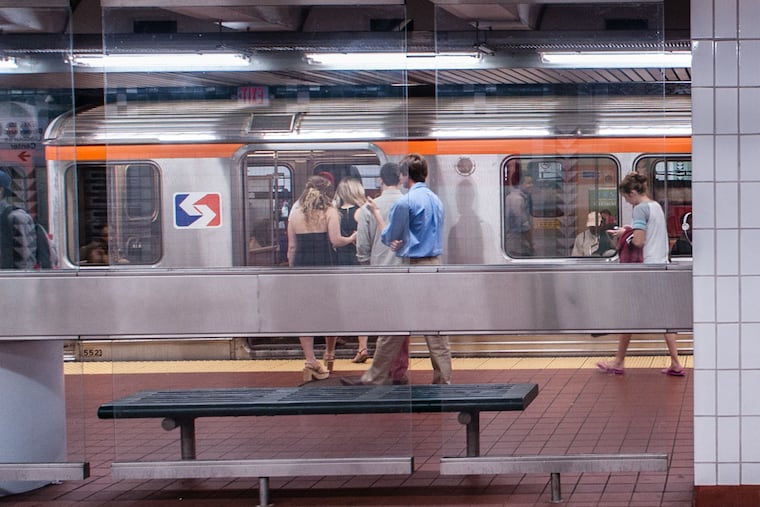SEPTA: More-expensive night trains staying as service to riders
SEPTA'S subway trains will keep on a-rolling all night long on weekends, even though they cost more to operate than the Night Owl buses they replace.

SEPTA'S subway trains will keep on a-rolling all night long on weekends, even though they cost more to operate than the Night Owl buses they replace.
Make that about $34,000 more, according to statistics from the transit authority.
So why is SEPTA shelling out the extra dough for the service? To benefit the riders who executives say have served the company so well.
"You have to look at the bigger picture," Richard Burnfield, SEPTA's chief financial officer, told the Daily News.
"When we consider overnight train service, we see it as a benefit not just to SEPTA, but also to the people in the city and the entire region."
Night Owl trains, which run every 20 minutes from midnight to 5 a.m. on the weekends, were brought back by SEPTA in July as a "pilot program," Burnfield said. The trains had been out of operation for 20 years, replaced by buses that follow the Broad Street and Market-Frankford El line routes. The buses still run on weeknights.
After experiencing steady ridership and a reduction in criminal complaints, SEPTA extended the overnight-weekend train service indefinitely in October.
"When we measured the success of the pilot program, we had several factors in mind," Burnfield said. "On all fronts, we felt comfortable enough in those areas to warrant extending it."
And business has kept booming - an average of 15,000 people rode the trains each weekend through the end of October, according to SEPTA.
Another big reason for keeping the trains around is Philly's changing demographics, Burnfield said.
"We have a lot of millennials in the city, and a kid coming out of college has a lot of choices of where to live and work," he said.
"We looked at it like, 'How can Philly be competitive with other East Coast cities?'
"Those are things SEPTA has to think about: Yes, we're in the transportation business, but we also have to be concerned about our ridership and how it factors into the dynamics of the city."
Now that the trains are here to stay, Burnfield and his team are crunching the numbers, figuring out ways to reduce the bump in expenses.
Of that $34,000 difference, $27,000 comes from labor costs, mostly overtime paid to train operators, mechanics and Transit Police officers who don't normally work Friday and Saturday nights, according to SEPTA.
The rest goes to operational costs, like gas, fuel and facility upkeep.
Burnfield also noted that trains always cost more money to run than buses, in general, and that transit authorities rarely break even - that's why they receive government subsidies.
Overtime pay, he said, is currently the biggest issue, one that the transit authority hopes to resolve in the coming months.
"When we started the pilot, we couldn't schedule the overnight hours like a normal run," he said. "Now that we've made the decision to make it a permanent fixture, we can build the hours into the normal schedule."
Under union contracts, all SEPTA employees "pick" their schedules in advance every few months, said Jerri Williams, a SEPTA spokeswoman.
The next round of picking will be in February, and SEPTA will work with union leadership to help add shifts, Williams said.
SEPTA also is toying with adding a sponsor to help defray costs.
To that end, Titan, which handles SEPTA's advertising, has been in discussions with some "interested parties," said Burnfield, who declined to elaborate.
In the meantime, the trains will keep picking up passengers.
"I'm confident we can make this affordable," Burnfield said. "We've heard nothing but positive feedback, and it's clear this is a service that our riders want."